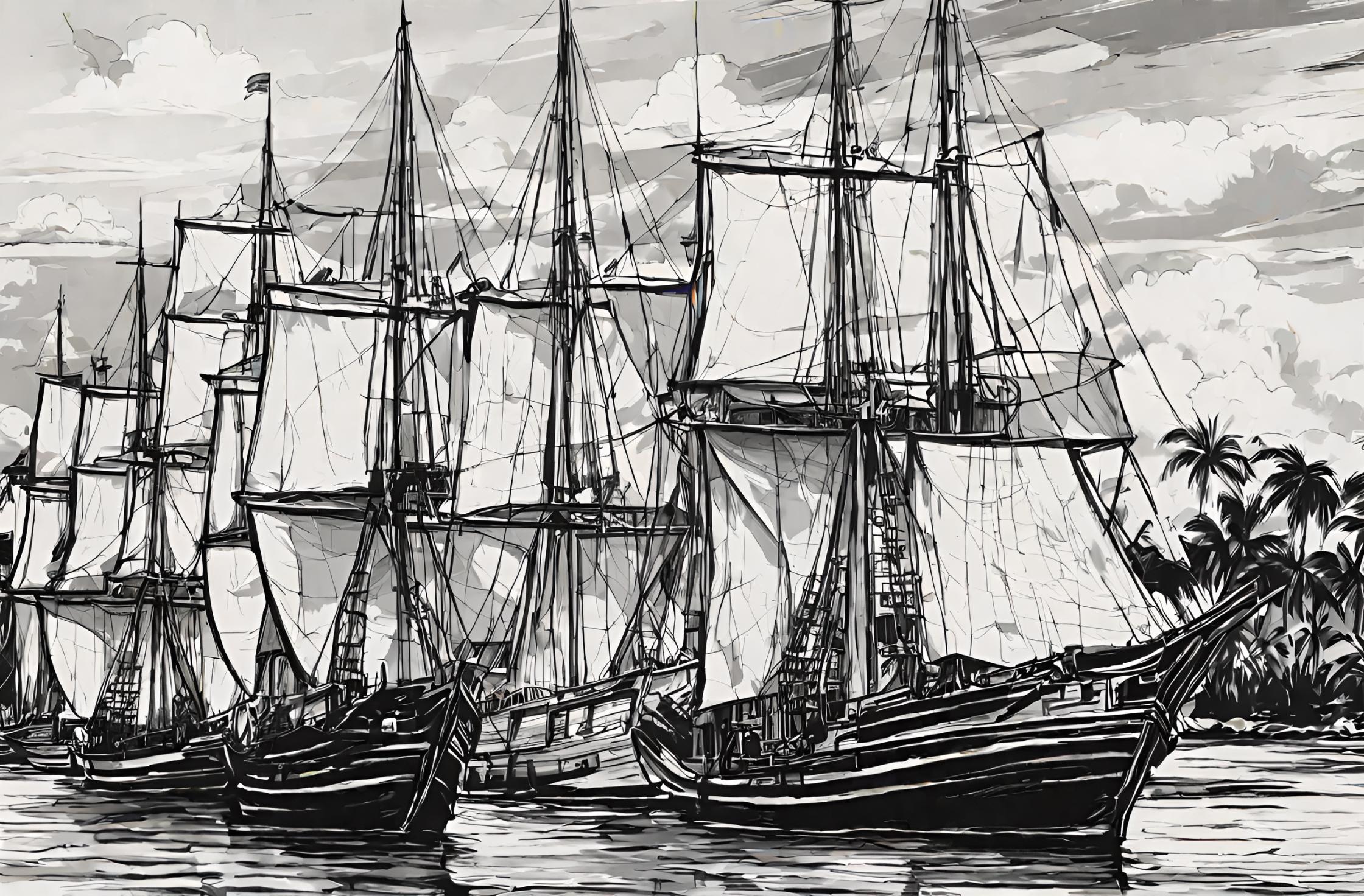Flashback to July 4
World History

On April 28, 1804, a significant event took place in Suriname’s history – 31 English ships sailed up the Suriname River, demanding the transition of the colony from Dutch to English rule. This event marked a turning point in the colonial era and had long-lasting implications for the future of Suriname. In this article, we will delve into the details of this event and explore its historical significance.
The 31 English ships that sailed up the Suriname River in 1804 were part of a larger plan to expand the British Empire’s influence in the Americas. At the time, Suriname was a Dutch colony, rich in natural resources such as sugar, coffee, and timber. The English saw an opportunity to gain control over these valuable commodities and increase their dominance in the region. Thus, a decision was made to seize the colony by force.
The English fleet, consisting of warships, merchant vessels, and transport ships, advanced up the Suriname River and anchored near the capital city of Paramaribo. The Dutch colonial authorities were taken by surprise, as they did not expect such a bold move by the English. They soon found themselves facing a formidable challenge, with outnumbered and outgunned ships.
The English ships demanded the immediate surrender of Suriname and the transition of power from Dutch to English rule. The Dutch governor, Johannes Socius, had little choice but to comply. Realizing the futility of resistance, Socius requested negotiations with the English admiral, seeking better terms for his surrender.
After intense negotiations, a transfer of power agreement was reached. The English agreed to respect the existing Dutch laws and institutions in Suriname while exercising control over the colony. This compromise allowed for a relatively smooth transition of power, avoiding excessive disruption to the daily lives of the colonists.
The consequences of the English takeover of Suriname were profound. The colony became a part of the British Empire and remained under English rule for the next century. This period of British administration had a lasting impact on Suriname’s political, economic, and social landscape.
Under English rule, Suriname experienced significant changes in its economic structure. The English focused on expanding and modernizing the agricultural sector, particularly in the production of sugar and coffee. This led to an increase in plantation-based agriculture and the importation of African slaves to work on these plantations.
The English also introduced new legal systems and governance structures in Suriname. They established courts, introduced a more centralized administration, and implemented various policies aimed at maintaining control over the colony. These changes shaped the future development of Surinamese society and laid the foundation for the country’s legal and administrative systems.
However, the English rule in Suriname was not without its challenges. The colony faced several uprisings and resistance movements by both enslaved Africans and indigenous populations. These rebellions were fueled by the harsh conditions endured by the enslaved Africans and the oppressive nature of the plantation system.
Ultimately, the events of April 28, 1804, marked a crucial turning point in Suriname’s history. The English takeover of the colony set the stage for a century of British rule, significantly impacting the colony’s economy, governance, and social dynamics. It serves as a reminder of the complexities and struggles experienced by Suriname as it transitioned from one colonial power to another.
We strive for accuracy. If you see something that doesn't look right, click here to contact us!
Sponsored Content

A supernova is observed…
On July 4, 1054,…

Grand Junction Railway –…
On July 4, 1837,…

The first employment agency…
On 7/4/1631, ThTophraste opened…

